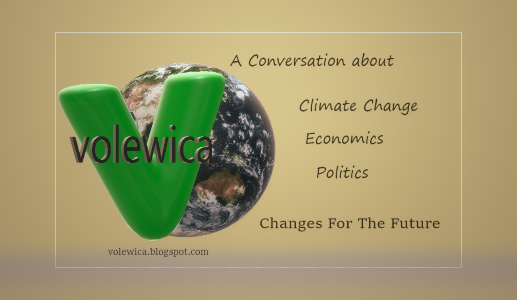What has happened over the last 35 years in the USA is that the incomes of the poorest half of Americans have stagnated or fallen in real terms. What happened in the 20s and 30s is happening again--hoi polloi are deserting mainstream parties and embracing non-centrist parties, in the US, Trump and his fascist hangers on on the right and Sanders and socialists on the left.
For the first time in decades ordinary people are questioning the whole neo-liberal consensus. In the past, you could assume that the rising tide of economic growth lifted all boats. It was a simple equation: higher overall GDP growth was tantamount to raising living standards for everybody. So we should all be in favour of measures which raise growth. And for a long time we were. We swallowed measures which added to growth even if they hurt some sectors of the economy because we accepted the underlying premise.
The problem is that it can no longer be taken as given that growth will benefit everybody, or even more than half the population. And if rising GDP all accrues to the richest, why should we as a society support all the apparently axiomatic tenets of neo-liberalism: free trade, tax cuts, reductions in government spending, breaking the unions, embracing multinational corporations, slashing unemployment benefit, etc, etc? Worse: in the OECD, between 1980 and 2007, real GDP growth averaged 2.9% per annum. Then came the GFC, during which OECD real GDP fell over 5%. Since the low point in 2009, growth has not returned to its previous trend line. Not only has there been no rebound, a typical response after previous downturns, but the new growth rate is only 1.8% per annum, not much better than half what it was before the GFC. And the GFC itself can be blamed on neo-liberalism. How can neo-liberalism be so great if (a) most of us are no better or actually worse off and (b) overall growth is pretty anaemic too?
One of the puzzles of the US, for outsiders, is why the poor in the USA do not embrace the Left. Religion plays a part. The naïve belief in the American dream, even though more than ever, children belong to the same class as their parents. Plus, the left option they have, the Democrats, isn't particularly left-wing, in fact. And the Left is now so identified with identity politics.
This interesting article in the Guardian discusses how for the first time in decades, socialism is gaining ground among young people.
At the heart of the ideas flooding into that space is a debate about the role of the state after decades of conservatives painting government as oppressive and a burden keeping good Americans down.
The campaign over healthcare, the anger sparked by the rapaciousness of big banks bailed out by the taxpayer, and a belief that only the state has the strength to reverse deepening inequality is breathing new life into the old idea that the government is there to control capitalism, rather than capitalism controlling the government.
If that takes hold among a wider group of millennials, it will represent a seismic shift in the way many Americans think about the pre-eminent role of the state and capitalism in their lives.
To an older generation of leftwing activists, that sounds a lot like the New Deal – President Franklin Roosevelt’s bold attempt to remake the American economic system and rein in the forces of capitalism in response to the Great Depression of the 1930s. The Works Progress Administration, which provided jobs to millions made unemployed by economic collapse, was at one time the single largest employer in the country. A raft of legislation addressed pay, working conditions and housing. Roosevelt also introduced banking regulation that stayed in place until the 1990s. Roosevelt saw the reforms as laying the foundations for the kind of social democratic society the US helped build in western Europe after the second world war.
“Young people who say that they’re socialists, or look favourably on socialism, they’re thinking about a kind of New Deal government or democracy against markets,” said Frances Fox Piven, coauthor of a widely debated radical plan in the 1960s to alleviate poverty and create a basic income, and more recently the target of a vilification campaign by Fox News.
“What the New Deal represented was government efforts to regulate an unbridled capitalism and to supplement the distribution of income under markets with government programs.”
Piven, a City University of New York professor, sees a shift in thinking among some younger Americans reflecting a time before politicians conflated democracy with the free market and government with private business.
“The New Deal is the clearest and boldest period in the wake of real collapse in capitalist markets. You could just call it economic democracy,” she said. “What they got right was the imperative of regulating the economy. That development was cut short by the second world war and the urgency with which the government turned to big business to cooperate in the war effort and gave a lot of licence to big business. It stopped the New Deal in its tracks.”[Read more here]
If those who support neo-liberalism want hoi polloi (the 99%) to vote for them, they will have to persuade us that neo-liberalism is good and that it will improve our standard of living, not theirs. So far, they are failing.


No comments:
Post a Comment